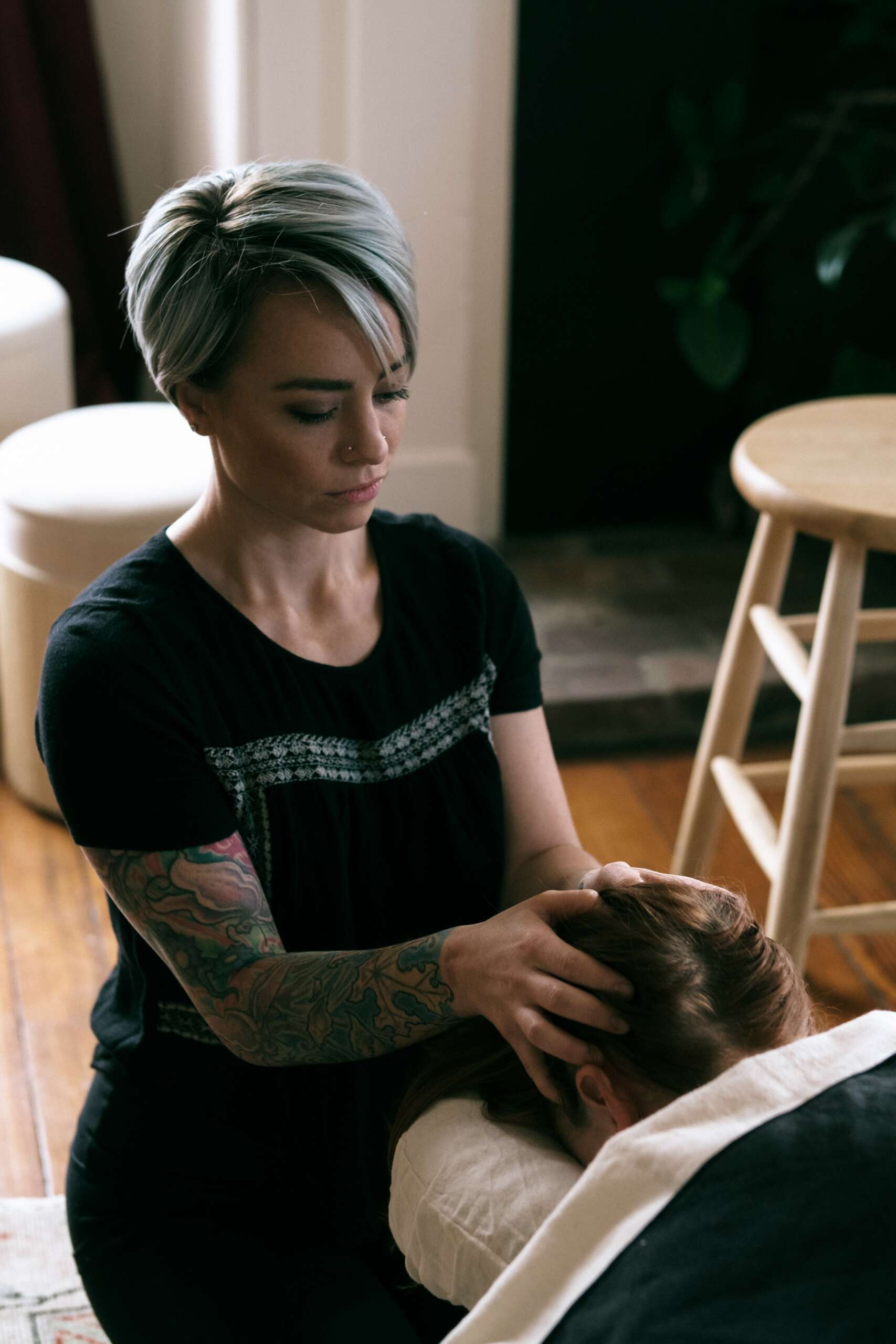We’re excited to introduce you to the always interesting and insightful Misha Tsozik. We hope you’ll enjoy our conversation with Misha below.
Misha, thanks for taking the time to share your stories with us today We’d love to hear about how you went about setting up your own practice and if you have any advice for professionals who might be considering starting their own?
Just like anyone who has a story of how they got from point A to point B in life, it was anything but a straight line between the choice to go to massage school and the choice to open Mbodi. Looking back at my path, I find it especially interesting that the moments in which both of those ‘choices’ were made, I was overwhelmed and needed a way out of what felt like unsustainable circumstances in my work and personal life.
Both choices were ones of personal healing. I have never felt like it was my ‘dream’ to touch people for a living. The choice to seek an education in massage therapy was ultimately a story of trauma and burnout, and a deep desire within me to find a path forward that would offer a quiet place for me to be with myself while being of service to those who needed a place to rest.
Similarly, I didn’t really feel ‘ready’ to open a business (I had two children under 3 years old at the time I opened the studio doors for my first session at Mbodi). The opportunity to open Mbodi began with some really hard conversations with the people I had shared space with while I worked to build my solo practice. After several years working together, their business was moving into a new growth phase and they wanted me to explore opening my own practice outside of their clinic.
Transitioning out of that partnership was very painful for me because working closely with people you genuinely like overtime has a way of developing a sense of friendship. We passed through some pretty major life transitions together, like becoming parents at the same time. I would definitely say that this was a time where I learned how protective it is for everyone involved when you are skilled with boundaries and clear agreements.
Opening my business was also very scary. Before the opportunity unexpectedly presented itself, I had never really allowed myself to consider stepping out on my own. My father had owned a business that closed during the 2008 financial crisis. That financial trauma stuck with me in ways I am still processing but at that time in my life, but I had honestly never considered running my own business without the safety net of a larger brand or organization to rely on.
Ultimately, I needed to have my own space to build a brand that was in touch with my values. It took tremendous courage for me to step into the role of financial and ethical responsibility it takes to work at building something sustainable, not just for me but for my team and our clients… I’m honored to offer people the very thing I had been longing for when I first became a massage therapist… a place to feel safe enough to be fully present in my body. A place to help me return to myself and my own inner resources.
I hope other therapists and healing arts practitioners will read this story and understand that the choice to offer space to heal involves and stems from their own healing. I would also say that opening and growing a business is a healing journey all it’s own. It asks us to be really clear about what we want to offer our community, why we need to be the ones to offer it, and how we can offer our services or products without losing ourselves or our humanity in the process.
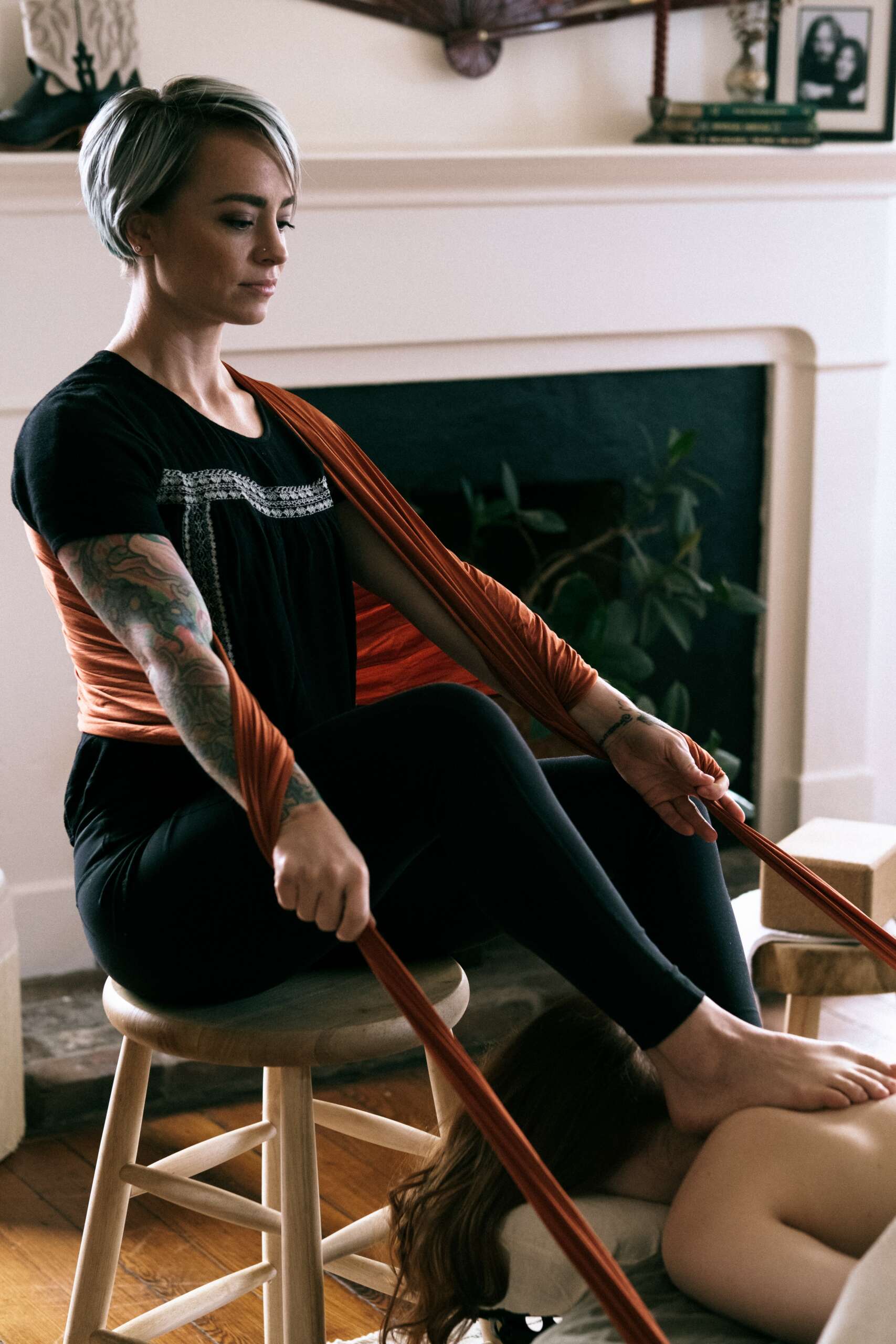
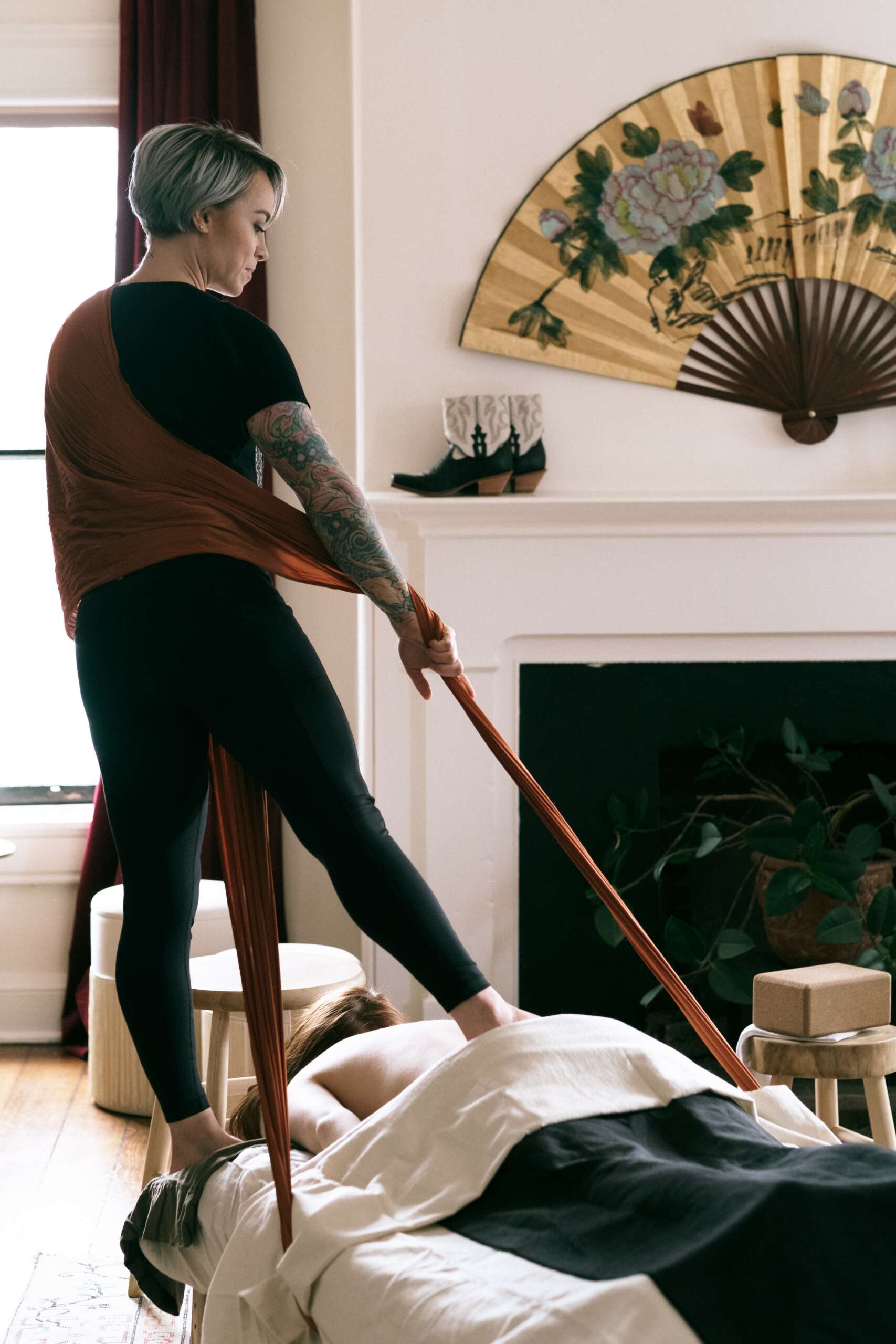
As always, we appreciate you sharing your insights and we’ve got a few more questions for you, but before we get to all of that can you take a minute to introduce yourself and give our readers some of your back background and context?
Oh hello everyone! I am the founder and owner of Mbodi, a cozy wellness studio in Louisville, KY specializing in trauma-sensitive, mindful bodywork and massage. We use therapeutic touch to help people practice finding a sense of safety and trust in their bodies. Our mission is to use mindful bodywork to help our clients find a sense of agency with their body, discover what it feels like to slow down and rest, and cultivate a more resilient experience of wellbeing.
Many of our clients seek bodywork as a way to slow down in real time when there is not enough space in life to take a longer break, retreat, vacation, or leave of absence to deal with stress and the tension they carry in their body as a result. Often people feel pain and tension as a result of chronic stress and the many ways the body compensates in order to manage that stress. Chronic tension and pain is a signal from the body to pay attention, that something is not working for us.
When our body is trying to get our attention, touch is a direct way to experience being ‘met where we are’ because touch is the tool that facilitates us paying attention to our body AND having someone else give care and attention to us. This is why therapeutic touch is so powerful… it is a form of non-judgemental validation that clients can give to themselves (by seeking out bodywork) and receive from another person (the practitioner providing the touch).
Allowing ourselves to experience care from another person in this way, our nervous system begins to co-regulate by borrowing and the part of our body that is responding to stress calms down. We feel a sense of increased safety. Tension in the body comes down. We rest.
Overtime, we become familiar with what creates tension because we have more access to a body that can let go of tension. We begin to notice tension building which gives us the ability to work with stress earlier and to be curious and creative when we seek solutions, rather than habitually reactive.
With ongoing practice, we learn to slow down when we catch ourselves bracing and pause when there is pain. Our body becomes our guide for learning where our natural boundaries exist and we can begin expressing our limitations. This is how bodywork fosters agency and ownership.
In our sessions, there is an ongoing dialogue between practitioners and clients about what is needed for rest, what feels like it wants attention, and providing feedback about what we are noticing through our touch and observation while asking for clients to express what they are noticing in their body as the work unfolds.
We don’t assume that what we are doing is what is needed simply because we are trained and ‘know’ how to provide therapeutic touch. We are not psychics or mind readers. Our skill is deep, full bodied listening with our eyes, ears, hands, and our own nervous systems.
This is perhaps one major way our studio and brand is different from many mainstream spaces. Rather than offering sessions that highlight specific techniques or products, our somatic philosophy is rooted in the power of presence, attunement, and mindfulness as we craft each session around the central question of what the body needs right now for rest. Each session functions as a meditative practice where we guide clients back to their body and the present moment.
In creating Mbodi, I’m most proud of how we support sustainability and growth for the therapists who offer this beautiful work to our community. Most people aren’t aware that the majority of massage therapists leave the field within the first 5 years of practicing. The pay and workload is unsustainable. It’s common to experience sexual advances or harassment from clients. Every single person on my team has shared stories of this happening, especially during our early years of practice because we weren’t as skilled at detecting the red flags that often accompany this behavior. As a practicing therapist myself, it has always been important to me to build a business that offers sustainable compensation and continuing education, allow each therapist to dictate their schedule, put operating procedures in place that greatly reduce the risk of people covertly seeking sex work ending up on our schedules. and foster a culture of abundance rather than competitive scarcity.
I’m humbled to be supported by my team and my family. While I have my vision and ideas for Mbodi, I have been so lucky to work with people who share that vision. People who help me polish and refine our service model, and share the same desire to bring the best of ourselves to the treatment room, everyday.
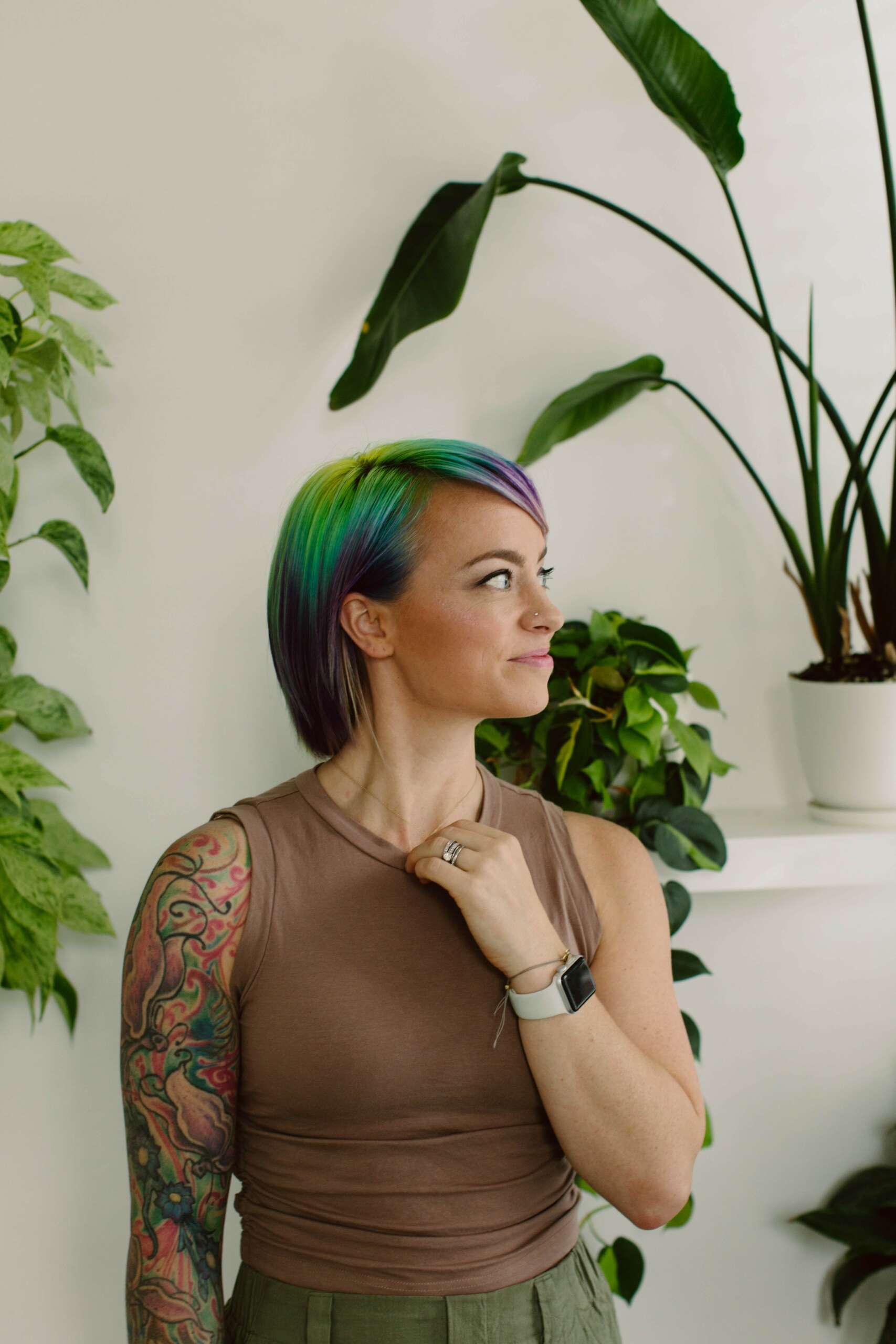
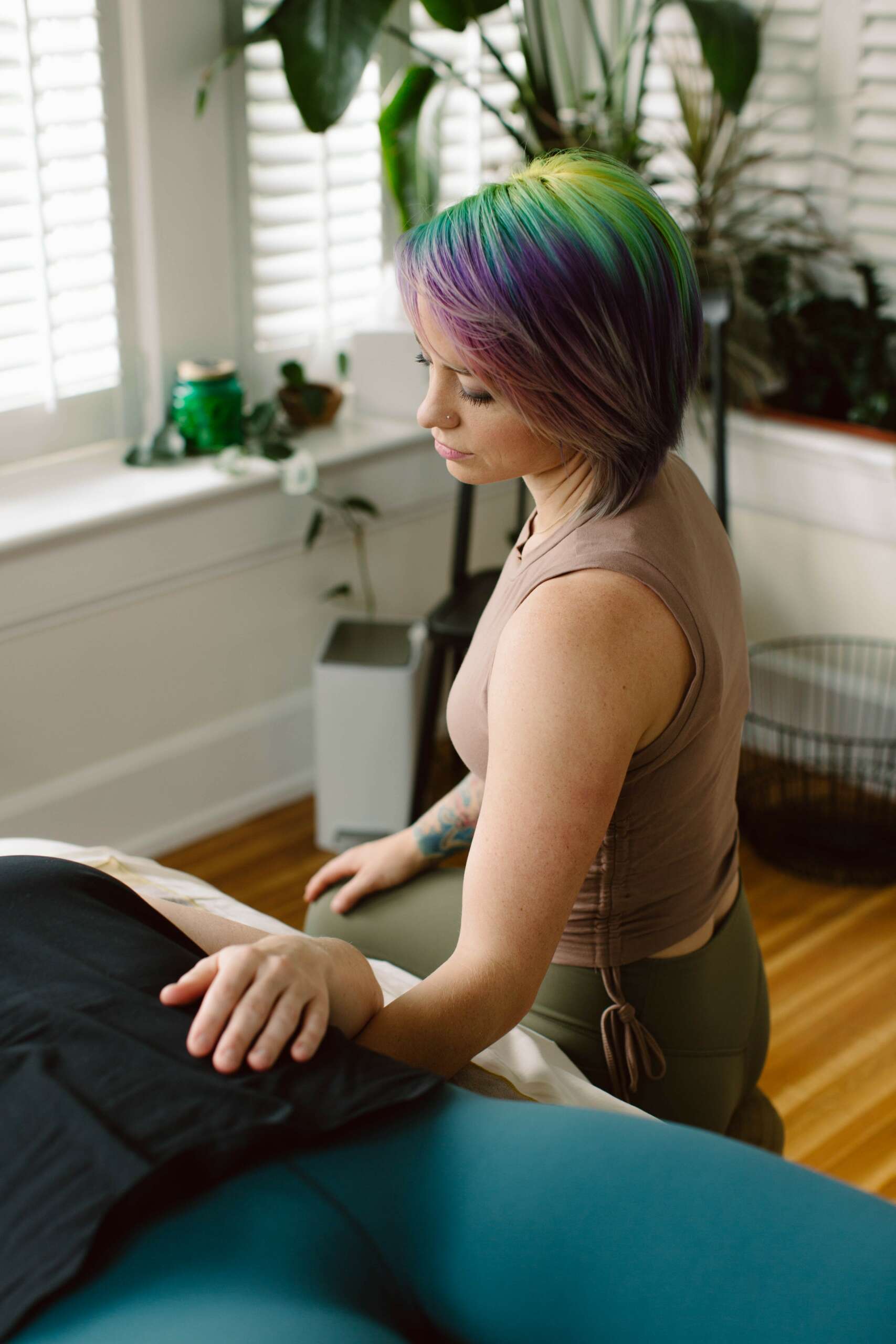
Any advice for managing a team?
Maintaining morale is ultimately a story of managing stress and begins with your own nervous system regulation. As a leader, if you’re stressed, your team will pick up on it. This is where honesty and vulnerability become skill sets, because they build trust. There is a difference between vulnerability and dumping your stress on your team. It’s acknowledging your own stress and how it may be impacting everyone. It’s asking for support from your team and learning how to delegate so you stay regulated and out of overwhelm. When people feel like they’re valued for their skills and trusted to do the job they were hired for, it creates resilience to weather stressful seasons together, as a team.
It’s also important to recognize that if morale is struggling, there are real reasons for it. Listening to your team, individually and as a collective about what they are experiencing is a vital part of learning how to move forward and raise morale. It’s amazing how feeling connected, supported, and respected functions to keep our trust and positive outlook high, even under increased stress. In my experience, morale correlates with trust among the team. When everyone feels like they can rely on each other, and that they are working together towards the same shared vision, it’s easier to breathe and focus on what’s directly in front of them.
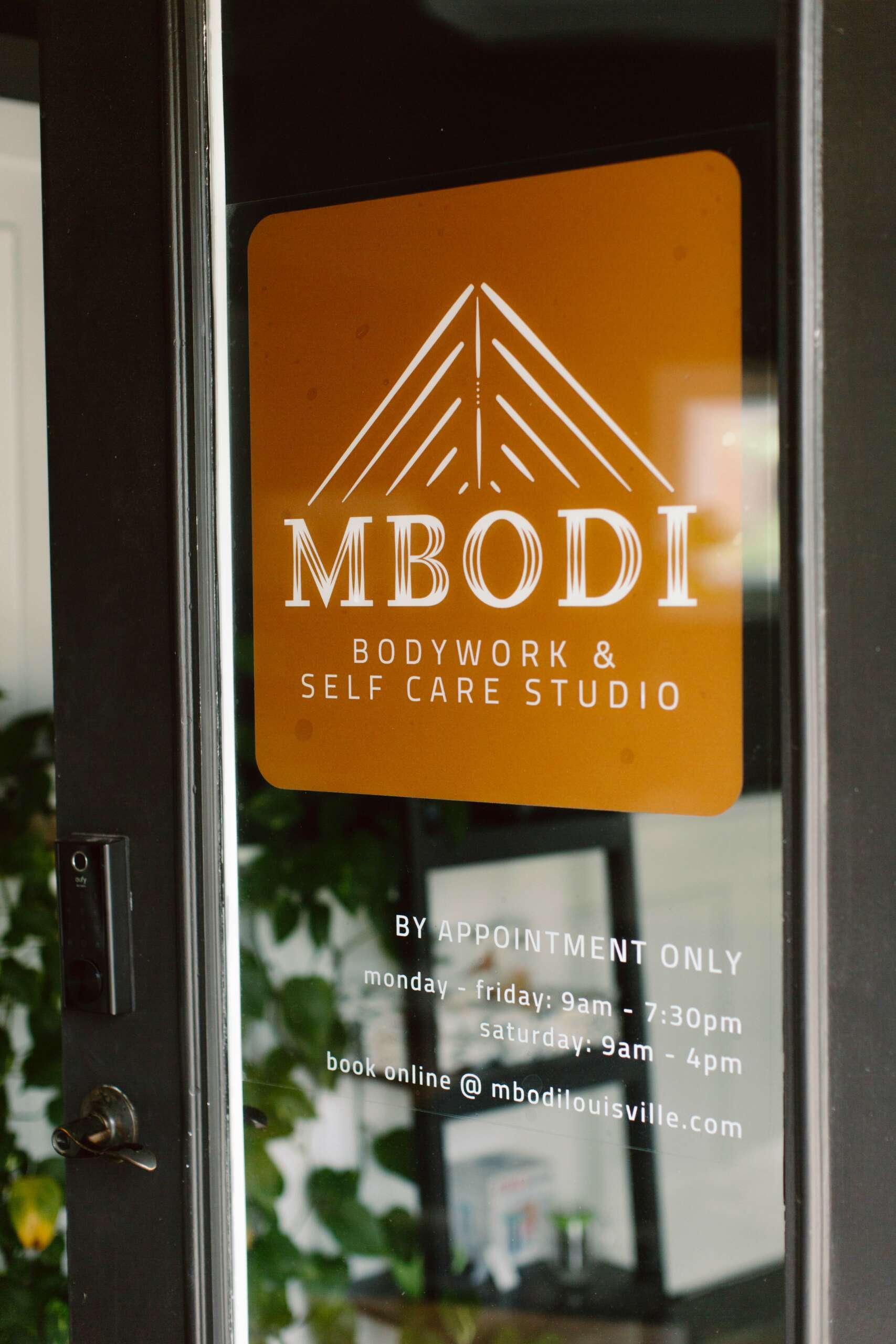

Can you tell us about a time you’ve had to pivot?
As a business that offers physical touch, COVID-19 pandemic business closures hit us very hard. We were completely shut down with no income for two months. Upon returning, we had to re-evaluate everything about our pricing model and how we paid the team. Access to unemployment became extremely important for our financial security moving forward so we transitioned all of our independent contractors to employees of Mbodi.
We had to throw the existing pricing anchor established by multi-location franchises out the window. It forced me to re-evaluate my relationship with charging a lower hourly rate and accepting gratuity. As a licensed therapist this always felt weird and off but it was also the norm in our industry, and in an industry that often overworks its service providers, the additional money was needed to cover what our compensation did not provide. I decided to stop relating to my work as a performance that people evaluate and give additional money on top of the service fee. I needed to be able to reliably predict my income and wanted the same for everyone on my team, so we decided to raise our hourly rates to a range comparable with other valid therapy forms like psychotherapy and physical therapy, and also eliminate gratuity. It has been a major game changer for my team to know that their hourly income does not depend on a multitude of factors. New clients are always extremely pleased to not have the additional headache of factoring in gratuity. We arrived at our rates based on what WE needed to provide services and live our lives without the fear of losing our financial footing or scheduling ourselves in ways that lead to cyclical burnout.
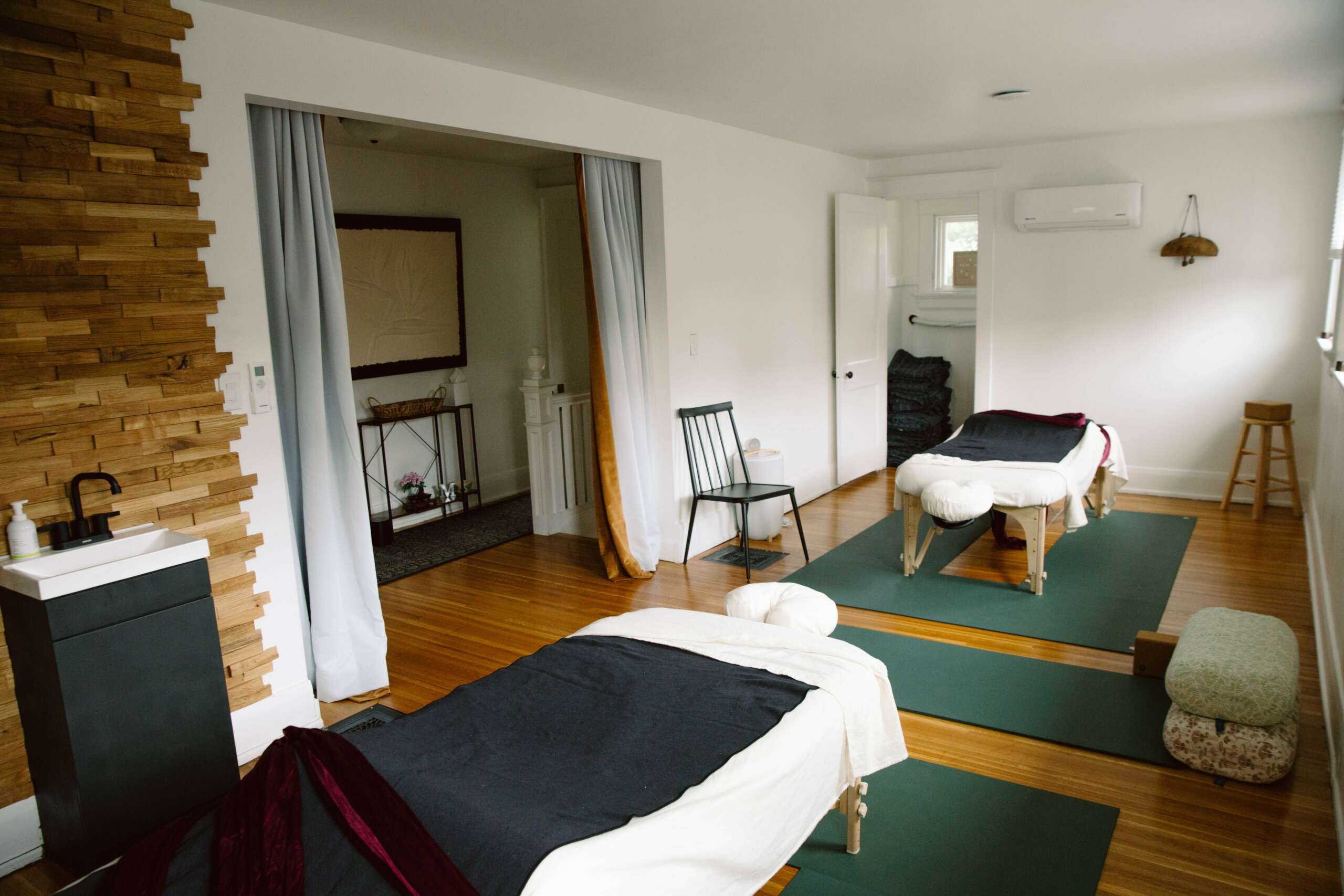

Contact Info:
- Website: mbodilouisville.com
- Instagram: instagram.com/mbodi.life
Image Credits
Kendra Farris Kate Starkel


